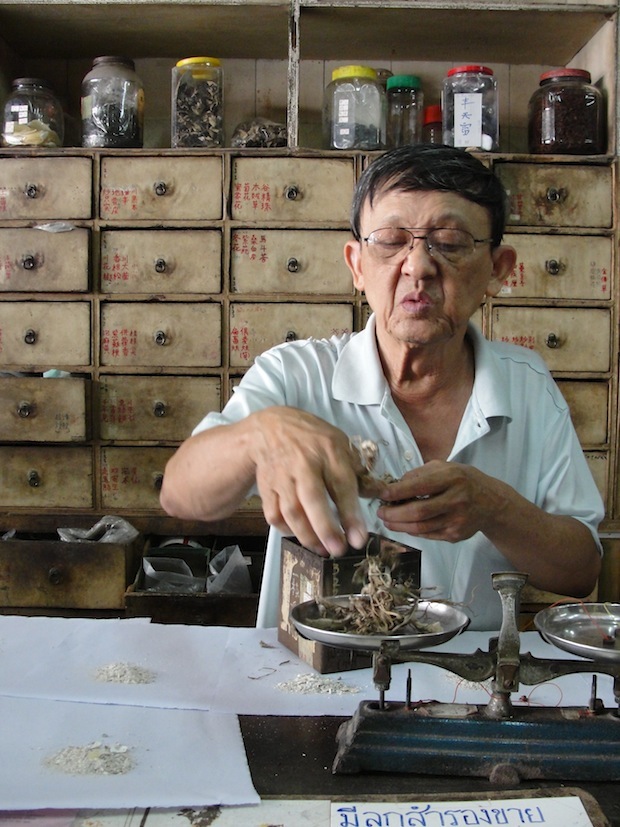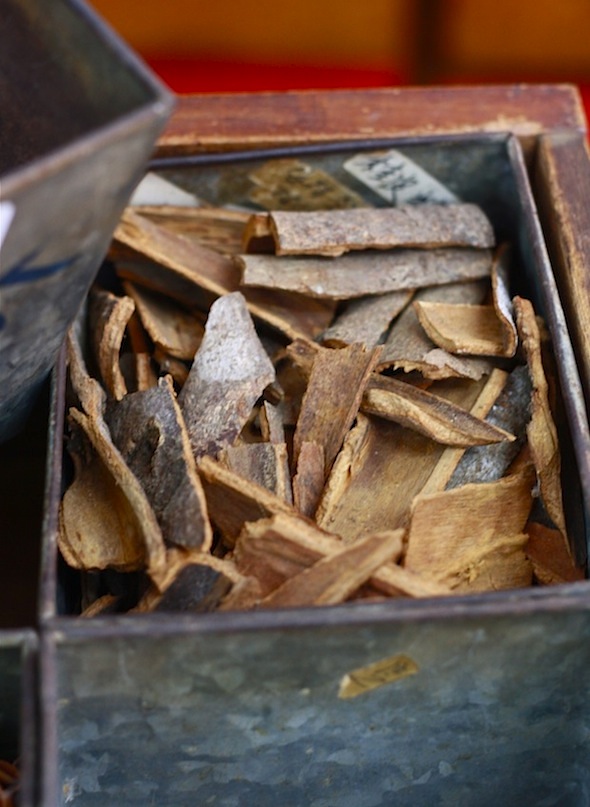Traditional Chinese Medicine may stir up images of needles poked in someone's back during an acupuncture session, or bottles of strange medicines sourced from plants and animals, or the delicate and fluid T’ai Chi body movements of an elderly Chinese man in the park before sunrise. Mysterious, ancient methods and remedies that are questioned for their relevance, and sometimes safety, by skeptics in the medical field.
Doubts should lead to research, but more often than not - because Traditional Chinese Medicine does not fall in line with the model of Western medicines and procedures - many important aspects of these healing traditions are overlooked or disregarded.
Doubts should lead to research, but more often than not - because Traditional Chinese Medicine does not fall in line with the model of Western medicines and procedures - many important aspects of these healing traditions are overlooked or disregarded.
Developed over thousands of years, Traditional Chinese Medicine is a complex system based on factors such as philosophy, spirituality, energy, relationships, cycles, and elements of nature. But at its core, Traditional Chinese Medicine is simply a process of keeping both the mind and the body in balance - Yin & Yang.
The method of maintaining a Yin & Yang balance for a healthy life is most commonly practiced in Chinese herbal medicine. An approach that focuses both on the prevention and treatment of ailments through the daily use of herbs, which provide both nutrients and medicinal benefits. This may be a combination of herbs boiled with chicken and served as a soup during dinner every night. Or a simple mix of herbs steeped for a cup of soothing tea, or even for a hot dessert.
In Chinese herbal medicine*, food & medicine are often one in the same.
In Chinese herbal medicine*, food & medicine are often one in the same.
Image courtesy of Cheng Woh
While there are thousands of different herbs used in Chinese herbal medicine – including popular herbs like ginseng, ginkgo, and wolfberry (goji berry) – many of them are the same spices & herbs found in your spice rack such as cinnamon (cassia) 肉桂, ginger, clove 丁香, star anise 八角, and nutmeg.
However, the basis and practice of Chinese herbal medicine is much more complex than a sprinkle of ground cassia or a slice of fresh ginger. The secrets lie in the combinations, in the preparation, in the timing, and in the uses of the herbs. And most importantly, the secrets lie within each individual, and the many internal and external factors in their life that will determine how best to keep a harmonious balance of both body and mind.
Over the next three articles on Season with Spice, we will explore Chinese herbal medicine. First, with a feature on Cheng Woh Medical Hall 正和药行 – a traditional Chinese herbal shop located in the UNESCO World Heritage site of George Town. Second, with a basic introduction to some of the more popular herbs used today in Chinese herbal medicine. And third, a guide to flower herbal teas like Chrysanthemum, Jasmine, and Lavender.
*On Season with Spice, we can not claim to the overall effectiveness of Chinese herbal medicine, but we do share in one of its basic, universal messages - that spices & herbs are an essential part of the daily diet in order to lead a healthy life and prevent disease.






